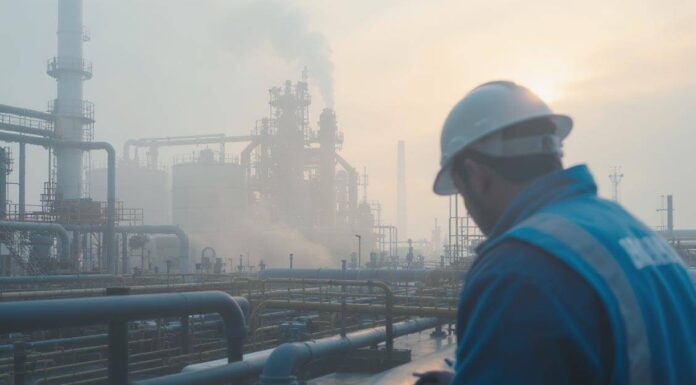The Promises of Biofuels: Climate Benefits versus Environmental Costs
Biofuels like corn ethanol and soy biodiesel have been promoted for their potential to reduce carbon emissions compared to traditional fossil fuels. Studies indicate that certain types of biofuels can lower greenhouse gas emissions by 20-90% under optimal conditions (EPA, 2025). However, the production of these biofuels often leads to indirect land-use changes, causing deforestation and loss of biodiversity.
Growth Versus Sustainability
Increased demand for biofuel crops has led to significant land-use changes. For instance, mandates for corn and soybean production for ethanol and biodiesel have expanded agricultural land, encroaching into forests and natural habitats (EPA, 2025). This not only displaces wildlife but also releases stored carbon from trees and soil into the atmosphere, negating the supposed climate benefits.
Technological Innovations in Biofuel Production
Emerging technologies in fourth-generation biofuels utilize waste materials and even algae, which do not require arable land for cultivation. Innovations such as using artificial intelligence to optimize supply chains could potentially enhance sustainability metrics (PMC article, 2025). Moreover, climate-smart agricultural practices like applying biochar or enhanced rock weathering are promising methods to reduce lifecycle emissions from biofuel production.
Policy Implications: Striking a Balance
Policy plays a crucial role in shaping the impact of biofuels. Recent proposals by Michigan State University researchers suggest implementing climate-smart biofuel policies that reward low-carbon farming practices (MSU News, 2025). Such measures aim not only to reduce emissions but also support farmers financially, encouraging sustainable practices over more destructive ones.
Economic Impacts and Policy Critiques
However, critiques from a U.S. Department of Energy report (2025) suggest that current aggressive climate policies affiliated with biofuel production may possess limited near-term benefits and could introduce economic drawbacks. These insights highlight the need for careful policy design that effectively balances environmental goals with economic realities.
Environmental Impacts: Beyond Carbon Savings
Deforestation at Hand
Critically, the expansion of biofuel crops has been linked directly to increased deforestation rates worldwide. Notably in Indonesia and Malaysia, palm oil production for biodiesel mandates has led to significant losses in forest cover (Eco-Business, 2025). Similarly, in Brazil and Argentina, soy cultivation for biodiesel pushes agriculture deeper into forested areas (Inside Climate News, 2025).
Food vs. Fuel Debate
The competition between fuel and food production remains a significant issue as arable land is increasingly diverted from food crops to fuel crops. This shift contributes to higher food prices and accessibility issues in various parts of the world (ScienceDirect review, 2020).
Moving Forward: Sustainable Solutions and Alternatives
As we scrutinize the viability of biofuels within our global energy portfolio, it is crucial to develop solutions that do not compromise food security or lead to ecological damage. Ending subsidies for crop-based fuels, improving regulations around land use, and investing in waste-to-energy technologies could provide paths forward.
Additionally, reducing overall energy demand through degrowth strategies combined with bolstering public transport could significantly lessen our reliance on bioenergy.

KEY FIGURES
- Biofuels can reduce greenhouse gas emissions and support multiple UN Sustainable Development Goals (SDGs), including climate resilience and sustainable energy (SDGs 7, 12, and 13)[1].
- Most biofuel production is still from crop-based feedstocks like corn ethanol, with limited uptake of second-generation biofuels from cellulosic feedstocks, which impacts environmental outcomes[3].
- Increased acreage for corn and soybean production linked to biofuel mandates contributes to land-use changes and environmental impacts, including deforestation and resource pressure[3].
- Climate-smart agricultural practices (e.g., no-till farming, crop rotation, biochar use) can lower the carbon footprint of biofuel feedstocks and improve sustainability[2].
RECENT NEWS
- August 19, 2025: Michigan State University researchers propose climate-smart biofuel policy that rewards low-carbon farming practices, aiming to reduce supply-chain emissions in biofuel production and support farmers financially[2].
- July 30, 2025: U.S. Department of Energy report critically reviews greenhouse gas emissions impacts, suggesting that aggressive climate mitigation policies may have limited near-term benefits and could have economic drawbacks, indirectly relevant to biofuel policy debates[4].
STUDIES AND REPORTS
- A 2025 scientific synthesis highlights biofuels from first- to fourth-generation technologies as crucial for sustainable energy transitions but emphasizes that supply chain innovation and policy alignment are needed to ensure climate benefits and socioeconomic equity[1].
- The U.S. EPA’s Third Triennial Report to Congress (2025) finds that the Renewable Fuel Standard (RFS) program has had modest negative environmental impacts, largely related to increased crop production and land-use change, but notes that advanced biofuel technologies could mitigate these effects if scaled[3].
- A study on Portugal’s biofuel sector (2025) analyzing the Renewable Energy Directive II (RED II) shows that regulations impact company performance and consumer acceptance, suggesting that policy design is critical for promoting sustainable biofuel markets[5].
TECHNOLOGICAL DEVELOPMENTS
- Emerging fourth-generation biofuels involve systemic innovation using AI and data science to optimize supply chains and improve sustainability metrics[1].
- Climate-smart agriculture technologies such as biochar application and enhanced rock weathering are being integrated into biofuel feedstock production to reduce lifecycle emissions[2].
- Second-generation biofuels from non-food biomass (corn stover, perennial grasses, woody biomass, algae, and waste) are recognized as promising but have yet to achieve large-scale commercial viability[3].
MAIN SOURCES
- PMC article (2025): Comprehensive synthesis of biofuel technologies and sustainability challenges with emphasis on policy and innovation https://pmc.ncbi.nlm.nih.gov/articles/PMC11994937/
- Michigan State University (2025): News on climate-smart biofuel policy development targeting low-carbon agriculture https://msutoday.msu.edu/news/2025/08/msu-researcher-partners-to-develop-climate-smart-biofuel-policy
- U.S. EPA (2025): Third Triennial Report on biofuels and environmental impacts under the Renewable Fuel Standard https://www.epa.gov/risk/biofuels-and-environment
- U.S. Department of Energy (2025): Critical review of greenhouse gas emissions impacts on climate and policy implications https://advancedbiofuelsusa.info/a-critical-review-of-impacts-of-greenhouse-gas-emissions-on-the-u-s-climate-public-comment-deadline-tbd
- Tandfonline article (2025): Impact assessment of EU biofuel directive on company performance and consumer behavior https://www.tandfonline.com/doi/full/10.1080/15567249.2025.2477510?af=R
—
Summary: Crop-based biofuels like corn ethanol and palm biodiesel have climate benefits but also contribute to deforestation, biodiversity loss, and food competition due to land-use changes. Policies such as the U.S. Renewable Fuel Standard and EU’s RED II influence these outcomes, sometimes exacerbating environmental harms. Advanced biofuels and climate-smart agricultural practices offer pathways to reduce negative impacts. Emerging technologies and data-driven management hold promise for improving sustainability. However, experts emphasize demand reduction (less aviation and car use) and protecting natural ecosystems as critical complementary strategies.
Other references:
pmc.ncbi.nlm.nih.gov – Analyzing the contributions of biofuels, biomass, and bioenergy to …
msutoday.msu.edu – MSU scientist partners on biofuel policy for a carbon-neutral …
epa.gov – Biofuels and the Environment | US EPA
advancedbiofuelsusa.info – A Critical Review of Impacts of Greenhouse Gas Emissions on the …
tandfonline.com – The impact of climate change policies on the biofuels sector
pmc.ncbi.nlm.nih.gov – Source
royalsocietypublishing.org – Source
epa.gov – Source
climatepolicyinfohub.eu – Source
wri.org – Source
link.springer.com – Source
prnewswire.com – Source
eco-business.com – Source
insideclimatenews.org – Source
climatenetwork.org – Source
clf.org – Source
ecowatch.com – Source
sciencedirect.com – Source



